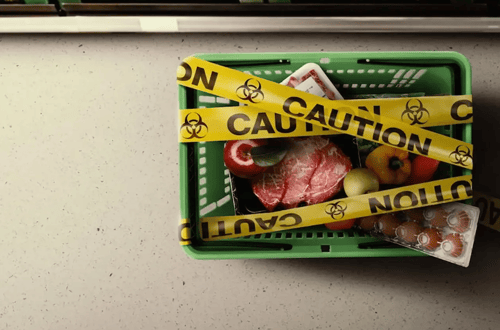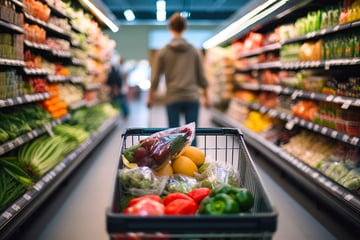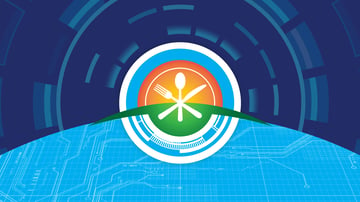Netflix’s latest documentary, Poisoned: The Dirty Truth About Your Food, opens with a staggering statistic all too familiar to those of us in the food safety business:
“48 million people get sick from foodborne illness each year in the United States, according to the CDC.”
 Viewers, who, as the documentary points out, have become accustomed to the ongoing assurance that the United States has the “safest food chain in the world” are now being confronted with the realities of the myriad food safety risks consumers face on a daily basis.
Viewers, who, as the documentary points out, have become accustomed to the ongoing assurance that the United States has the “safest food chain in the world” are now being confronted with the realities of the myriad food safety risks consumers face on a daily basis.
While the documentary highlights the vulnerabilities and risks inherent in our food system, it also helps viewers understand the dynamic and complex nature of our global food supply chain. Weaving in the tales of infamous and deadly outbreaks from the past, Poisoned showcases many of the more profound inflection points in food safety from the past.
Again, while many of the events, trends, and statistics highlighted in the documentary are familiar to food safety professionals, the lessons to be gained from our food safety history can’t be lost. As showcased in Poisoned, these incidents in our food safety history have often been followed by robust regulatory reform requiring industry-wide innovations in how we design, run, and manage our food supply chain. As the documentary proves, when the food industry is aligned toward a single goal, broad and sweeping change can be achieved.
Relying solely on regulatory reform to drive improvements in transparency and traceability isn’t a proactive approach and overlooks the consumers’ desire to see more transparency in the food supply chain. Given these considerations, what can food companies do today to make the food safety dangers highlighted in Poisoned a thing of the past?
Building a Safer Future for Food: Next Steps for Food Safety Professionals
Our global food supply chain is intricate and complex and becoming increasingly more so every day. Fortunately, the technology to support more robust food safety and minimize the risk of contamination is already here – food industry professionals have the tools and resources needed to address many of the problems highlighted throughout the Poisoned documentary. The path forward will require businesses to invest in their internal tools and technologies, adopt new capabilities around data and analytics, and institutionalize stronger channels for collaboration and communication with suppliers, customers, peers, and stakeholders across the food supply chain.
Inspired by the documentary, and our latest podcast episode with Dr. Darin Detwiler, our team of food safety experts highlighted some of the key considerations that leaders should be taking into account as they look ahead.
1. Collaborate Across the Business and Stakeholders
.png?width=150&height=150&name=Julie-McGill-Trustwell-Headshot%20(1).png) Julie McGill, Trustwell’s Vice President of Supply Chain Strategy and Insights, underscores the collective nature of food safety responsibility. Food businesses should seek both operational and technological opportunities to enhance collaboration with suppliers and other supply chain stakeholders. Advancements in tech-enabled traceability software have enabled a real-time view of supply chain operations, which, when used collaboratively and collectively, can bring about a more holistic, end-to-end view of the food supply chain.
Julie McGill, Trustwell’s Vice President of Supply Chain Strategy and Insights, underscores the collective nature of food safety responsibility. Food businesses should seek both operational and technological opportunities to enhance collaboration with suppliers and other supply chain stakeholders. Advancements in tech-enabled traceability software have enabled a real-time view of supply chain operations, which, when used collaboratively and collectively, can bring about a more holistic, end-to-end view of the food supply chain.
Further, leveraging a common data standard, like GS1 standards for identification and traceability, also facilitates more efficient and seamless data interoperability, which in turn enhances the potential value and ROI of the collective data sets as it’s more efficient to analyze and act on. This collaboration amongst stakeholders can help to close gaps across disparate systems so if a food safety issue occurs, the right people are notified, aware of what to do, and able to act swiftly and appropriately.
2. Integrate Data and Analytics Across the Supply Chain
By harnessing the power of data and analytics throughout every stage of the supply chain – from gathering supplier data to collecting data from critical tracking events – stakeholders can gain real-time insights into the safety and quality of food products.
That data can then be analyzed to identify patterns and trends, enabling the development of predictive models that can proactively alert stakeholders along the supply chain of any potential risks. For example, with Trustwell’s FoodLogiQ Compliance, you have access to a customizable dashboard that enables you to review food safety metrics with live data and ensure accurate decision-making in real-time. If an incident happens along the supply chain – such as a spoiled or damaged batch – you can easily communicate with supply chain partners, identify the affected lot, isolate it, and make informed decisions on how to improve future shipments.
3. Prioritize Food Safety Training and Education
Prioritizing food safety training and education for all food handlers along the supply chain is paramount for ensuring a safer and more secure food system. Proper training equips individuals with the knowledge and skills necessary to handle food correctly, adhere to safety protocols, and respond effectively to potential hazards. This comprehensive approach not only reduces the risk of foodborne illnesses but also enhances (and protects) the overall quality and reputation of the brand and can help to maintain consumer trust.
Some examples of taking this proactive approach include:
- Have a food safety plan in place. Not only is this a FSMA requirement, but it will also help to ensure that your team knows what to do and when to act in the event of a food safety event.
- Hold mock audits or recalls to help your team prepare for the real deal. If a real recall happens and your team isn’t prepared, the response time could take longer, resulting in a delayed media response, and potentially more lives impacted by foodborne illnesses. However, if personnel can learn the ins and outs of a recall during a trial event, they will have an easier time handling such a stressful situation in a professional and expedient manner.
- Ensure employees participate in trainings and stay updated on certifications. The regulatory landscape is constantly evolving, and as such, you need to ensure your team is both aware of the latest regulations and up-to-date on any required certifications to adequately and effectively perform their role. (Trustwell Tip: Consider a solution that allows you to track this information for your team and suppliers to ensure compliance!)
- Institutionalize your organization’s ability to manage change effectively. From implementing new technologies, to adopting more agile processes, to encouraging staff trainings or learnings, fostering a culture of flexibility and adaptability is critical to ensuring success up and down the supply chain in a rapidly evolving industry. When everyone is aligned on and aware of any new change, it makes the process of working toward your common goal that much attainable.
 As Trustwell Chief Customer Officer Katy Jones shared:
As Trustwell Chief Customer Officer Katy Jones shared:
“We need to make sure food handlers and employees get comprehensive training and educational resources centered on a culture of food safety. When they understand the importance of food safety protocols and best practices, they can really make a difference in keeping our food journey safe for U.S. consumers.”
Securing a Safer Food Future
As the Poisoned documentary highlighted, there’s still much work to be done to create a safer future for food. In an increasingly complex global supply chain, we can all play a meaningful role as we work toward that goal. It will involve prioritizing a continuous culture of improvement, fostering greater supply chain transparency, and encouraging collaboration across many stakeholders – from the C-Suite to suppliers to consumers. To learn more about securing a safer food future and investing in industry-leading food safety technology, our team at Trustwell can help.
Other posts you might be interested in
View All Posts
Food Industry
9 min read
| October 6, 2023
Darin Detwiler and Bill Marler on Food Safety & What We Owe Consumers
Read More
Food Industry
24 min read
| April 30, 2024
Trustwell Reflects on the FDA’s Virtual Public Meeting: Data and Technology in the New Era of Smarter Food Safety
Read More
Food Industry
17 min read
| November 13, 2025

